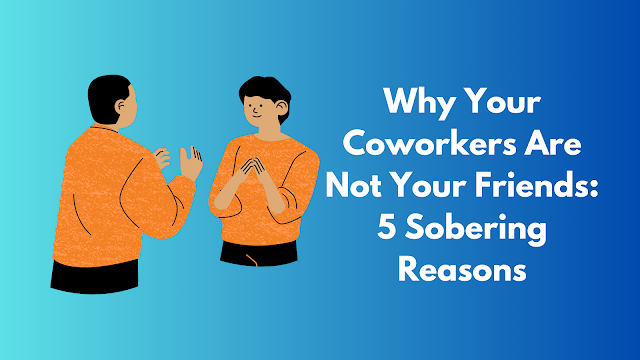Introduction When stress builds up, most people try to think their way out of it. They analyze, rationalize, and replay situations in their head, hoping clarity will bring relief. Unfortunately, the mind often amplifies emotional chaos instead of calming it. This is why logic alone rarely works during moments of anxiety, overwhelm, or mental fatigue. The body, however, responds faster than thought. Neuroscience shows that physical sensations send direct signals to the brain, influencing emotional states almost immediately. When you change your body’s signals, your nervous system follows. This is why small physical actions—done intentionally—can create instant shifts in mood, focus, and confidence. These physical micro-habits do not require discipline, motivation, or preparation. They are simple, subtle actions that work even when your mind feels tired or overloaded. By engaging the body first, you allow the mind to settle naturally. Below are seven science-backed micro-habit...
Introduction
In the fast-paced and dynamic landscape of the modern workplace, the boundaries between professional relationships and personal connections often become blurred amid the hustle and bustle. The intertwining of deadlines, meetings, and collaborative efforts can create an environment where the line between coworker and friend seems to fade. Despite the appearance of camaraderie, it's imperative to discern the nuances that distinguish workplace acquaintances from genuine friendships. Let's delve into five sobering reasons why your coworkers may not be your friends in the truest sense.5 Sobering Reasons
1. Shared Space, Not Shared Lives:The workplace is a shared space where individuals come together to achieve common goals. However, this shared professional environment doesn't necessarily translate to shared lives outside of the office. Your coworkers may be great team members, collaborating seamlessly on projects and deadlines, but that doesn't automatically make them friends with whom you'd share your personal struggles or triumphs. The commonality of work does not always extend to shared values, interests, or lifestyles outside the office.
2. Transactional Nature of Work Relationships:
In a professional setting, interactions are often transactional, revolving around tasks, projects, and deadlines. While these interactions are essential for a productive work environment, they don't inherently foster the deeper emotional connections characteristic of friendships. The primary goal of coworkers is to accomplish work-related objectives, and the nature of these relationships tends to be more task-oriented than emotionally invested.
3. Competition and Hierarchical Dynamics:
Workplaces often involve a degree of competition, whether for promotions, recognition, or project opportunities. The presence of hierarchical structures can add an additional layer of complexity to relationships, making it challenging to establish genuine friendships. The inherent power dynamics can create an environment where people are cautious about revealing too much of themselves, hindering the development of the trust and vulnerability that are the foundation of true friendships.
4. Professionalism vs. Personal Connection:
Professionalism is a cornerstone of the workplace, emphasizing boundaries and maintaining a level of formality. While this is crucial for a well-functioning work environment, it can create a barrier to the kind of personal connection that friendships thrive on. Colleagues may be friendly and supportive within the professional realm, but the constraints of maintaining a professional image can limit the depth of personal interactions.
5. Changing Dynamics Beyond the Office:
When the dynamics of the workplace change, so too can the nature of relationships among coworkers. Transitions, such as job changes, promotions, or relocations, can alter the dynamics of these connections. What seemed like a strong friendship within the context of a specific job role might not withstand the changes that come with shifts in professional circumstances. Unlike true friendships that endure life's transitions, workplace connections may prove to be more transient.
While it's essential to foster positive relationships in the workplace, it's equally important to maintain a realistic perspective on the nature of these connections. Your coworkers may be fantastic colleagues, collaborators, and mentors, but the dynamics of the professional environment can limit the depth of personal relationships. Recognizing these boundaries can lead to healthier, more realistic expectations and help you navigate the complex landscape of workplace interactions.
Professionalism is a cornerstone of the workplace, emphasizing boundaries and maintaining a level of formality. While this is crucial for a well-functioning work environment, it can create a barrier to the kind of personal connection that friendships thrive on. Colleagues may be friendly and supportive within the professional realm, but the constraints of maintaining a professional image can limit the depth of personal interactions.
5. Changing Dynamics Beyond the Office:
When the dynamics of the workplace change, so too can the nature of relationships among coworkers. Transitions, such as job changes, promotions, or relocations, can alter the dynamics of these connections. What seemed like a strong friendship within the context of a specific job role might not withstand the changes that come with shifts in professional circumstances. Unlike true friendships that endure life's transitions, workplace connections may prove to be more transient.
While it's essential to foster positive relationships in the workplace, it's equally important to maintain a realistic perspective on the nature of these connections. Your coworkers may be fantastic colleagues, collaborators, and mentors, but the dynamics of the professional environment can limit the depth of personal relationships. Recognizing these boundaries can lead to healthier, more realistic expectations and help you navigate the complex landscape of workplace interactions.


Comments
Post a Comment
Please do not add any spam link in the comment box